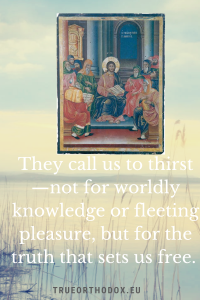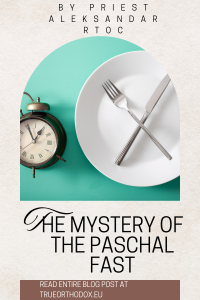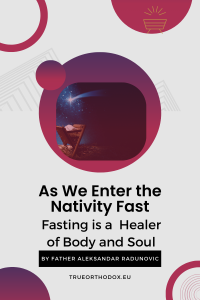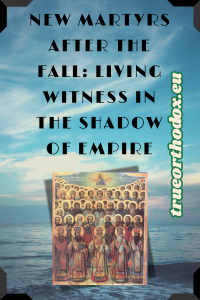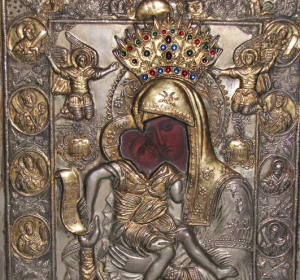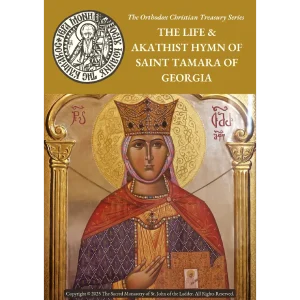Sermon on the Fourth Sunday of Great Lent (St. John of the Ladder by Archbishop Andrew (Rymarenko)
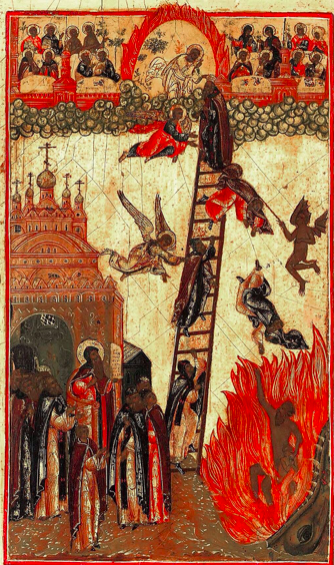
And one of the multitude answered and said, Master, I have brought unto thee my son, which hath a dumb spirit; And wheresoever he taketh him, he teareth him: and he foameth, and gnasheth with his teeth, and pineth away: and I spake to thy disciples that they should cast him out; and they could not. He answereth him, and saith, O faithless generation, how long shall I be with you? how long shall I suffer you? bring him unto me. And they brought him unto him: and when he saw him, straightway the spirit tare him; and he fell on the ground, and wallowed foaming. And he asked his father, How long is it ago since this came unto him? And he said, Of a child. And ofttimes it hath cast him into the fire, and into the waters, to destroy him: but if thou canst do any thing, have compassion on us, and help us. Jesus said unto him, If thou canst believe, all things are possible to him that believeth. And straightway the father of the child cried out, and said with tears, Lord, I believe; help thou mine unbelief. When Jesus saw that the people came running together, he rebuked the foul spirit, saying unto him, Thou dumb and deaf spirit, I charge thee, come out of him, and enter no more into him. And the spirit cried, and rent him sore, and came out of him: and he was as one dead; insomuch that many said, He is dead. But Jesus took him by the hand, and lifted him up; and he arose. And when he was come into the house, his disciples asked him privately, Why could not we cast him out? And he said unto them, This kind can come forth by nothing, but by prayer and fasting.
And they departed thence, and passed through Galilee; and he would not that any man should know it. For he taught his disciples, and said unto them, The Son of man is delivered into the hands of men, and they shall kill him; and after that he is killed, he shall rise the third day. (Mark 9:17-31)
And there followed him great multitudes of people from Galilee, and from Decapolis, and from Jerusalem, and from Judaea, and from beyond Jordan. And seeing the multitudes, he went up into a mountain: and when he was set, his disciples came unto him: And he opened his mouth, and taught them, saying,
Blessed are the poor in spirit: for theirs is the kingdom of heaven.
Blessed are they that mourn: for they shall be comforted.
Blessed are the meek: for they shall inherit the earth.
Blessed are they which do hunger and thirst after righteousness: for they shall be filled.
Blessed are the merciful: for they shall obtain mercy.
Blessed are the pure in heart: for they shall see God.
Blessed are the peacemakers: for they shall be called the children of God.
Blessed are they which are persecuted for righteousness’ sake: for theirs is the kingdom of heaven.
Blessed are ye, when men shall revile you, and persecute you, and shall say all manner of evil against you falsely, for my sake.
Rejoice, and be exceeding glad: for great is your reward in heaven: for so persecuted they the prophets which were before you. (Matthew 4:25-5:12)
Two Gospels were read today. The first was about the healing of the one possessed. The disciples of Christ asked Him when they were alone: “Why could we not cast him out?” And the Lord said to them, “This kind can come forth by nothing, but by prayer and fasting” (Mk. 9:28,29). This is as if a reminder that now is the time for prayer and fasting — Great Lent.
During the three weeks before Great Lent, we were shown the ways of repentance of a Christian who returns to his Father. And when Great Lent approached, with its hymns and prayers which were given to us during the Church readings of these past four weeks, we should have studied and understood ourselves. And when we understood ourselves, then involuntarily we should have come to a feeling of humility: “But Lord, what am I going to do? Lord, Thou seest how feeble and weak my will is. I constantly yield to the will of the prince of this world. Help me!” And I begin to weep.
This is why the second Gospel, about the Beatitudes, was read. These commandments show us what to do: step by step, as if rung by rung. This is why the Church this Sunday commemorates St. John of the Ladder, who wrote his spiritual work called “The Ladder,” which shows us what to do, how one virtue leads to another, like rungs on a ladder. In a spiritual sense, these steps are the Beatitudes. He who abides in spiritual poverty will surely weep because of his infirmity, and he who weeps because of his infirmity is already meek. In relation to his brother he will be indulgent and will always strive for mercy, for help in order to create peace which the Lord requires in our hearts. And he will not be afraid of persecution and will not think of how to take vengeance on those who harm him. No, he will always have this feeling: “Lord, I am weak, help me!”
This is why, after the Church gave us at the end of the first week of Lent the direction where we must go (into Orthodoxy), during the second week of Lent, the Sunday following the Sunday of Orthodoxy, she revealed to us the feeling of a man who already enters into spiritual endeavors; and he has before him the new principle of a man such as Gregory Palamas, who was renewed not only spiritually, but also physically.
And after showing us Gregory Palamas, the Church brought us to Golgotha. She showed us the Lord’s Cross, which we have venerated for the whole week. Those who were in church, and even those not in church, saw mentally before them Golgotha. We saw the wise thief and the thief who reviled Christ; and we saw Christ Himself Who pronounced His last words: “Into Thy hands I commend My spirit!” (Lk. 23:46).
This mood of Golgotha has remained with us. And we, who saw the reviling thief and the wise thief, should have determined: What are we to do? And seeing the long-suffering thief, we accepted in our hearts: “Lord, I will be long-suffering. But how am I to do this?” Live according to the Beatitudes. There is no other way. And this long-suffering, of whatever kind it may be, will cause us to suffer, but at the same time will give us blessedness not only in eternity, but even here, in the midst of our suffering, while we endure. To be poor in spirit, humble, to weep for our sins, meekly to endure offense, to wish peace to everyone, to wish everything good, to endure persecutions for Christ — all this is difficult. But at the same time it is also joyful. This is the only way to true happiness; and this is the shortest way.
So what is the matter? Let us make this step right now, this very moment. Everyone these days fights for happiness. But we don’t even have to fight (unless with ourselves) and we will be blessed. May God bless you to this step.
Source: One Thing Needful

